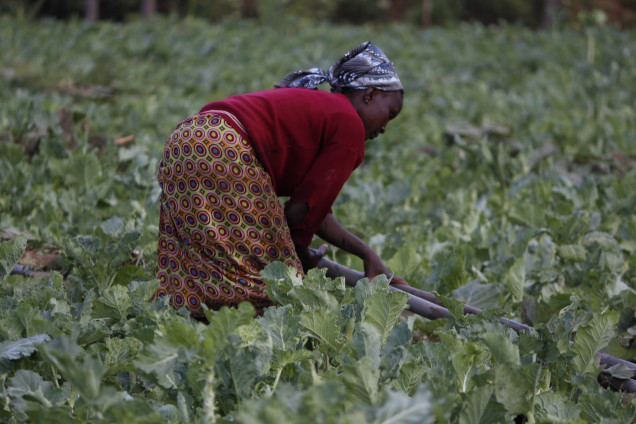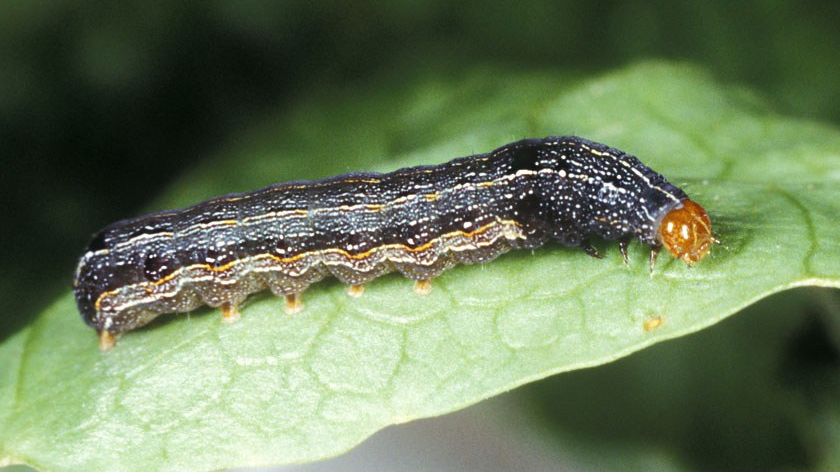Improving resistance of Kenya’s cabbage and kale crops to TuMV disease
A team of international scientists from CABI, the Kenyan Agricultural and Livestock Research Organisation (KALRO), NIAB EMR (UK), University of Warwick (UK) and Syngenta (Netherlands) are seeking to improve the resistance of Kenya’s cabbage and kale crops to Turnip mosaic virus (TuMV). In the distantly-related Chinese cabbage (Brassica rapa), a potentially durable TuMV disease resistance trait was identified by Professor John Walsh at the…
‘$10bn to feed 10 billion by 2050’, CABI tells AGRF
CABI has told the African Green Revolution Forum (AGRF) 2019 that investment in agritech needs to double to at least $10bn a year if the world’s smallholder farmers are to help feed a global population expected to reach 10 billion by 2050. Dr Dennis Rangi, CABI’s Director General, Development, speaking as part of a panel discussion on…
Biological controls viable alternative to pesticides for rice farmers in China
Between 2011 and 2015, CABI set up 22 Trichogramma rearing facilities as part of a project to promote the use of biologically-based Integrated Pest Management (IPM) for rice and maize crops. In addition to creating the Trichogramma rearing facilities, IPM strategies for rice and maize were developed in Southwestern China, Laos and Myanmar.
Crop-devastating pests in Rwanda to be targeted with space-age technology from PRISE programme
Pests, which threaten to destroy key cash and food security crops including maize, tomato and beans, are to be prioritized as part of an integrated pest management strategy using state-of-the-art space-age technology. Scores of smallholder farmers in Rwanda are the latest to benefit from the CABI-led consortium, funded by the UK Space Agency and the Global Challenges Research…
CABI calls for greater investment in food security programmes to help stem global rise in hunger
CABI is today calling for greater investment in food security programmes to help stem the global rise in hunger following the publication of a UN report which says more than 820 million people worldwide are still going hungry. The report, from the UN Food and Agriculture Organization (FAO), the International Fund for Agricultural Development (IFAD), the UN Children’s Fund (UNICEF), the World Food Programme (WFP)…
CABI collaborates on new research which suggests crop pests more widespread than previously known
Insects and diseases that damage crops are probably present in many places thought to be free of them, new research shows. Pests that have not been reported in a certain area are usually assumed to be absent, but analysis by the University of Exeter shows many pests are “currently unobserved, but probably present” (a likelihood…
Farmers in Malawi to benefit from space-age technology in fight against devastating crop pests
Farmers in Malawi are the latest to benefit from a CABI-led consortium, funded by the UK Space Agency, which is providing a Pest Risk Information Service (PRISE) to fight pest outbreaks that could devastate crops and livelihoods across the country. The service, which uses state-of-the-art technology to help inform farmers in sub-Saharan Africa – including Zambia, Ghana and…
World Food Prize winner’s vision sown in CABI-led Plantwise programme in Myanmar
World Food Prize Laureate for 2019 Simon N. Groot, founder of East-West Seed, helped train CABI Plantwise plant doctors in Myanmar so farmers can grow more and lose less to pests and diseases (Photo: World Food Prize). Simon N. Groot, the Dutch founder of East-West Seed, has won the World Food Prize 2019 for empowering millions…
CABI collaborates on innovative approach to tackling pesticide resistance evolution
CABI is joining an international team of scientists, led by the University of Stirling, to take a ‘revolutionary approach’ in attempting to tackle resistance to pesticides in insects with a specific focus on crops pests in Brazil. The £620,000 study will see UK-based Dr Belinda Luke working on the mass production of fungal biopesticides and formulation development…
CABI-led £1.6 million collaboration helps reduce China’s reliance on harmful pesticides
A CABI-led project involving an international team of remote sensing and plant protection experts is helping China reduce its reliance on harmful pesticides to fight crop pests and diseases including yellow rust fungal disease of wheat and locusts. The £1.6 million STFC Newton Agri-Tech Fund-financed project is leaving a lasting legacy in helping the Chinese Government…










